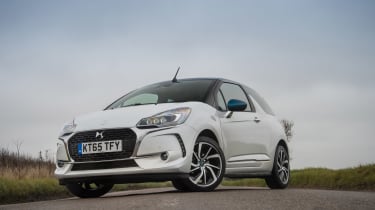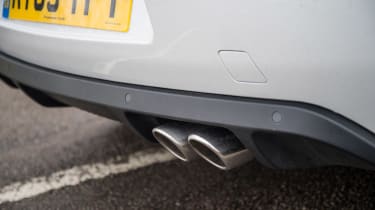DS 3 review - Does French hatch match a Mini for fun? - MPG and running costs
A car first, now a brand, the DS3 is Citroen’s spin-off that’s aiming at the premium players
The easiest on the wallet are inevitably the diesels, with both the BlueHDi 100 and BlueHDi 120 returning figures around 80mpg - 83.1mpg in the lesser model and 78.5 in the latter. Only in very exceptional circumstances will that be possible in the real world, but a realistic daily proposition in the late 50- to early 60mpg should be readily achievable. Those numbers also allow for negligible CO2 figures of 87g/km and 94g/km respectively. As a result, both dodge the annual penance of road tax and impact UK company car costs for the better, too.
The best petrol performer at the pumps is the PureTech 110, with 65.7mpg in manual form and a respectable 61.4mpg in EAT6 automatic spec. CO2 is 100g/km for the former and 105g/km or the latter. Unusually, in manual form the turbocharged model is more frugal than the non-turbo PureTech 82, which matches the auto 110 with 61.4mpg. In our experience with turbocharged engines - even small ones - the non-turbo car will probably drink less in the real world, but the tax difference may be the incentive you need to step up to the faster (and frankly more pleasant) 110. Or the PureTech 130, which achieves 62.8mpg combined.
If performance is your goal, you'll not suffer too much from opting for the THP or the Performance variants - the lower-power unit achieves 50.4mpg combined, while the range-topper actually goes a little better, at 52.3mpg and 125g/km of CO2. If you're not using the full 205bhp, that is...
Parent company Citroen is always offering discounts, and while DS is distinct these days there should be offers for fixed cost servicing, cheap financing deals and even free insurance. The DS 3 holds its value well too, so if you’re leasing it then costs should be very competitive.




